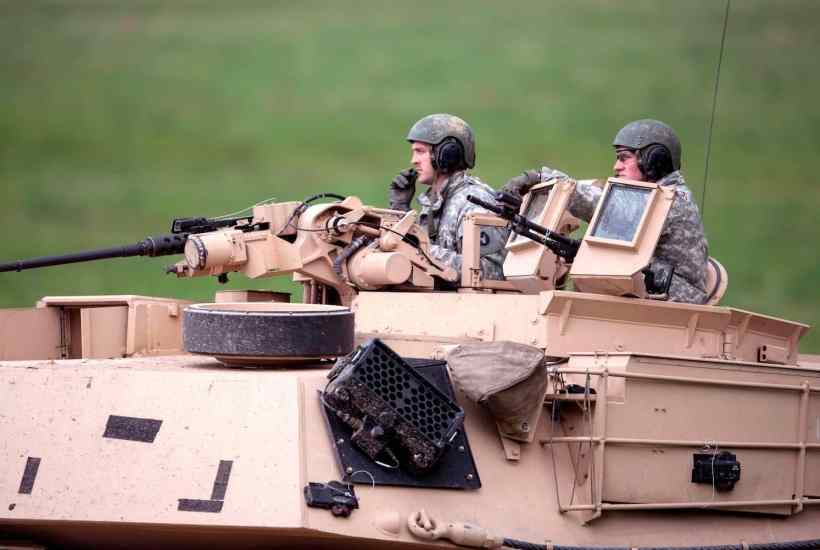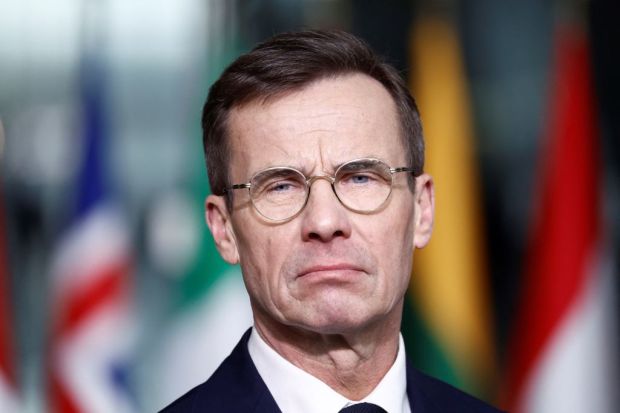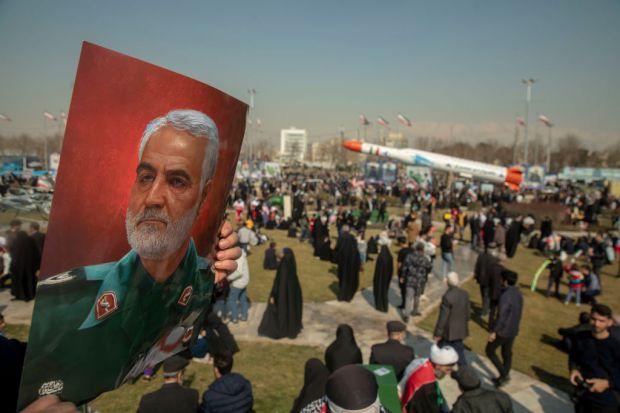Boris Johnson will arrive in Stockholm tomorrow to sign a defence agreement with Sweden to tide the country over until it enters Nato. He’ll then travel to Finland to agree similar terms. This is quite significant for a few reasons.
In theory, the European Union has a mutual defence clause (Article 42.7 of the Lisbon Treaty) – so if Sweden was attacked, the rest of the EU would come to its aid. But this does not seem to assure the Swedes any more than it assures the Poles or the Baltics. Sweden has sought, and will tomorrow be offered, a place under Britain’s nuclear umbrella – with the UK offering interim protection that has (so far) been denied to Sweden by the US.
Talks have been conducted in secret for the last few days. Members of the Swedish parliament’s defence and foreign affairs committees have held classified meetings, banned from taking their mobile phones in and sworn to silence. In Stockholm, rumours swirled about a secret bilateral cooperation deal with another country. There were not really any prizes for guessing who. In his visit to Finland last week, Ben Wallace said it was ‘inconceivable that Britain would not come to the support of Finland or Sweden if it was ever attacked’ thereby offering the assurance which, tomorrow, will be formalised.
David Cameron spoke about a ‘Northern alliance’ with the UK, Netherlands and Scandinavia: liberal states that like free trade and take a globalist view of defence obligations. Britain and Sweden have long had a special relationship. Our soldiers undergo winter training in Arvidsjaur in Lapland and join the Swedish military’s exercises. Peter Hultqvist, Sweden’s defence minister, was saying recently that ‘part of the Swedish strategy is to deepen cooperation with neighbours and countries that have similar values as us, and the United Kingdom is one of them.’ So a values-based alliance, rather than an EU-style geography-based alliance that Macron has favoured.
Last week, Wallace said that Britain, Finland and Sweden ‘are European countries who share the same values, who have deep, long histories. A significant number of the British population seem to be descended from Vikings anyhow.’ Let’s set aside how much Finland was really into Vikings: an overall theory holds. Britain is an ally worth having because we have the world’s fifth-largest military and a track record of coming to the aid of allies. A Royal Navy presence is understood to have been part of the UK’s talks with Sweden.
There are plenty of nerves in Sweden and Finland about Nato membership – they’re both expected to apply later this month. Both fear they may be vulnerable until Nato membership arrives: there has been talk that the ratification process could take months or even years. While Germany and the US have also offered support, Britain will be the first country to offer a written pact for pre-Nato protection.
This underlines a broader point behind Brexit: that the new alliances needed to manage new challenges will be global, not just European. The Ukraine crisis has strengthened the idea of a global alliance of democracies, with Australia, Taiwan, South Korea, Singapore and Japan all acting together. Even talking about “The West” seems very 20th century.
In theory, EU membership does not prevent countries acting independently on defence and other issues. But in practise, the EU has been trying to encouraging its members to act cohesively on areas (like vaccine procurement) where Brussels would like the EU to speak as one. The Commission has been keen to evolve into a diplomatic and defence alliance with its own foreign minister, etc, and sporadic talk about its own army. Accelerating plans for a security and defence union has been one of the priorities of the von der Leyen Commission. A European Defence Fund was launched in 2017.
This was part of the pre-Brexit tension. Britain always thought this was a non-starter – arguing that the EU, whose diverse member states take such different views on the world, could not and should not be expected to speak with one voice on diplomatic or military affairs. Macron and von der Leyen have a different vision. Macron has said the Ukraine crisis shows how the EU needs to look after its own defence without Nato (“we cannot depend on others to defend us’) and has called for a “true European army”. Britain is keen on Nato, Macron calls it “brain dead“. Both respectable positions, but they’re incompatible positions.
No one would blame Sweden and Finland for deciding not to hedge their bets on the EU becoming a reliable security alliance. Posters have started appearing in Russia portraying certain Swedes (from authors to Ikea’s founder) as Nazi sympathisers: language similar to that which Putin had reserved for Ukraine. Britain’s defence pact will make the point that Finland and Sweden will not stand alone should war reach their borders. The Stockholm pact will show that Britain after Brexit is keener than ever to renew and refresh global alliances. Japan last week, Sweden this week – and doubtless more to come.
Got something to add? Join the discussion and comment below.
Get 10 issues for just $10
Subscribe to The Spectator Australia today for the next 10 magazine issues, plus full online access, for just $10.





















Comments
Don't miss out
Join the conversation with other Spectator Australia readers. Subscribe to leave a comment.
SUBSCRIBEAlready a subscriber? Log in